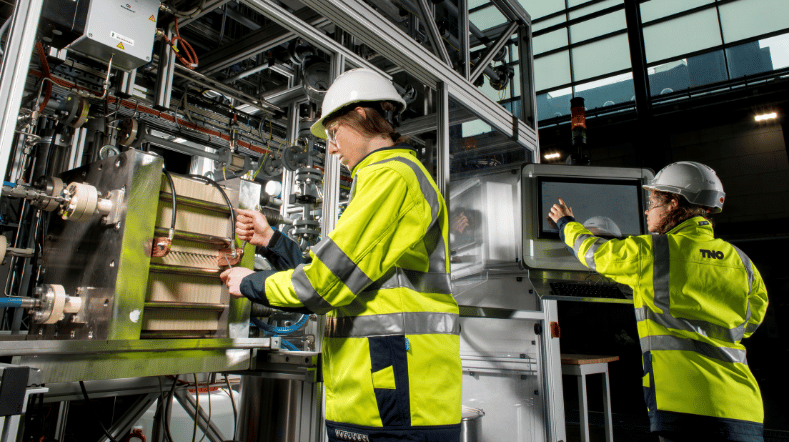Multi-partner ALIGN-CCUS project
International team wins EU funds to deliver deep decarbonisation of Europe’s industrial regions.
An international partnership of science and industry has begun a far-reaching project to help transform six European industrial regions into economically robust, low-carbon centers by 2025.
The multi-partner ALIGN-CCUS project, which has won nearly €15 million funding from the European ERA-NET ACT fund, will look at different but interlinking areas of research that will support the quick and cost-effective delivery of large-scale carbon capture, utilisation and storage (CCUS).
CCUS technology captures carbon dioxide from large emitting sources and either stores it permanently in the deep subsurface or employs it in useful products, facilitating significant cuts in emissions from industrial and power sectors. Its deployment is recognised as crucial to limiting global temperature increases to below 2°C and averting the worst impacts of climate change.
The ALIGN-CCUS project will focus on specific regions in five European countries: namely, North Rhine-Westphalia in Germany, Rotterdam in the Netherlands, Grenland in Norway, Oltenia in Romania, and Teesside and Grangemouth in the UK. Results will be used to draw up a blueprint for delivering CCUS in each region.
The project has a total operating budget of €23 million, which includes funding from national agencies in the five participating countries, the European Commission and around 35% of in-kind financing from industrial participants.
As part of the three-year project, which will be led by Dutch research institute, TNO, the team will focus on: optimising and reducing the costs of CO2 capture technology; planning large-scale CO2 transport; providing sufficient and safe offshore CO2 storage; developing the use of CO2 in energy storage and conversion; and supporting societal awareness of CCUS.
Peter van Os of TNO, who is leading the project, said: “The ALIGN-CCUS project has a unique, integrated approach that will significantly accelerate the transition of the current industry and power sector into a future of continued economic activity with low-carbon emissions.”
Niels Berghout of the International Energy Agency said: “Our analysis shows that around 14% of the emissions reductions needed up to 2060 will have to come from CCS to meet the 2°C target, and 19% to stay below the 2°C target. International research collaborations, such as ALIGN-CCUS, which unite science and industry in a common purpose, are vital to deepen our technological understanding and move CCS forward.”
One third of the project’s participants are industry partners, who recognise the benefit of developing a large-scale CCUS network for Europe’s industrial zones.
Get inspired
Ten things to know about carbon capture and storage (CCS)


Unique test installation for CO2 capture and conversion to green chemicals


SEWGS: revolutionary CO2-reduction technology

SEWGS


Capturing carbon emissions from industry




